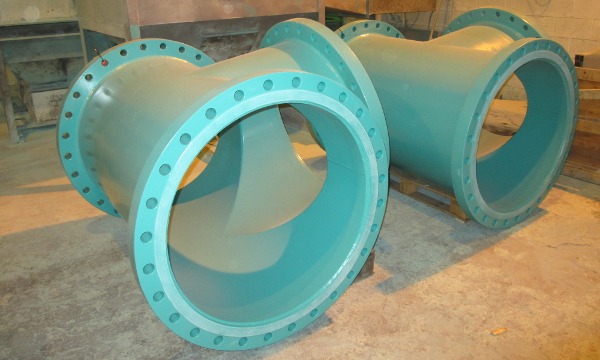An industrial coating is a layer or layers of paint or protective coating applied to steel, concrete or any other material that is subjected to elements that may cause erosion.
Epoxy and polyurethane are common polymers used in protective coatings and help to preserve the material’s performance as well as the longevity or the structure, increasing the lifetime expectancy of the product.
Common methods of application include brushes, paint rollers or airless sprayers. The type of application used depends on the type of coating to be used and the structure to be coated.
Where are Industrial Coatings Used?
Industrial Coatings are used in many places. Chances are you’ve observed countless structures that are covered in an industrial coating. Here is a list of common structures that are usually covered in some form of an industrial coating:
- Architectural metal works
- Public Machinery
- Power Generating Plants
- Construction Equipment
- Hospitals, Schools, and Office Buildings
- Garage Floors and Other Surfaces Where a Non-Slip Coating is Needed
- Deck Coatings
- Amusement Parks
- Tank Linings
The Benefits of Using Industrial Coatings
Benefits: Reduces friction and contact with corrosive environments. In addition, industrial coatings strengthen, provide more durability, and offer an added aesthetic element to the material. Applying an industrial coating will increase the life expectancy of a structure by helping to reduce the amount of exposure to harmful elements such as water, wind, and sun (to name a few).
Are All Industrial Coatings Created Equal?
The short answer to that question is no. Let’s dive a little bit deeper into why.
It’s important to choose the right type of coating to ensure that your materials are sufficiently protected from extreme temperatures and other variables.
Various types of weather conditions can determine what makes one coating more suitable than another. High temperatures or low temperatures may cause different kinds of problems, but a thermal coating may be effective in preventing these types of problems. The metal can be fortified by coating it with a thermal material.
Powder coatings can be extremely helpful as well, particularly in cases in which you need a coating that does not contain a solvent. These types of coatings can prevent corrosion on various materials like aluminum, acrylic, and automobile parts. Powder coatings are applied by heating up a thermoplastic material so that it turns into a powder. In most cases the surface itself is also heated up before the powder coating is applied so that the coating will stick to it effectively. Powder coatings are an excellent choice any time you need to ensure that the surface can resist corrosion and many kinds of chemical reaction.
The safest way to ensure you’re choosing the best coating for your job is to contact us here at PES-Solutions! We’re happy to help with all your Industrial Coating Needs.


I thought that coatings were just used for aesthetic purposes. I didn’t realize that it was also protecting the metal. If you put the wrong type of coating on a metal can it end up doing more harm than good? Does the coating ever need to be reapplied, or is once enough to provide the protection needed for the metals lifetime?
Paints are aesthetic purposes, Coatings are for protecting assets. If the coatings that are applied aren’t for the environment that the coating is designed to serve then moneys can be wasted. Things like surface preparation, non-Immersion, or Immersion, chemical type, percentage of any given chemical is a factor,along with temperatures dry, & wet. What are the day to day duties of a coating need to be known to give the best bang for the moneys invested. Once these questions have been answered then the proper coating chosen could easily see 15-20 years of service with little maintenance